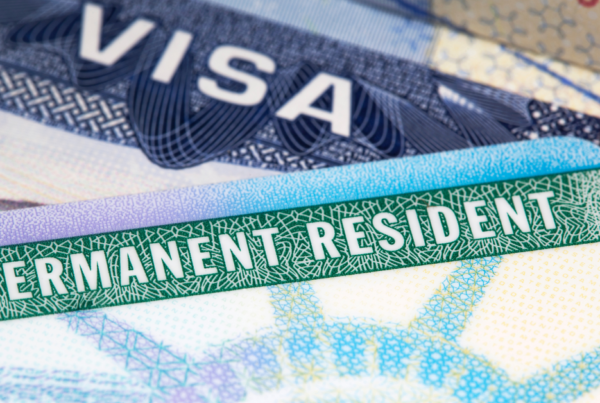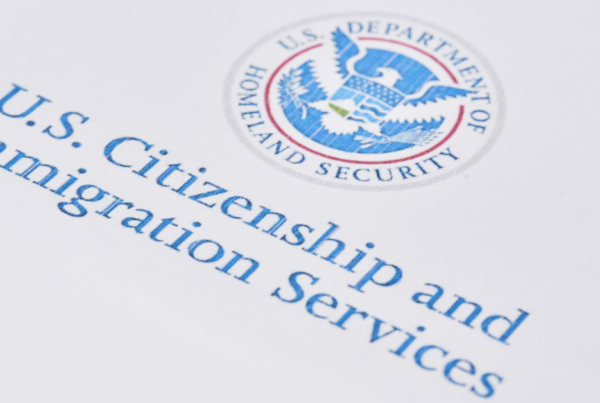
As a Glendale immigration lawyer, Attorney Franklin Nelson has a special interest in the California state Medicaid proposal referred to as “Medi-Cal” worked out by state Democrats and governor Gavin Newsom. The plan, in a nutshell, is designed to expand healthcare coverage to provide for many low-income and uninsured including many undocumented immigrants and to make coverage more affordable for middle-income individuals and families too.
Medi-Cal Explained By Glendale Immigration Lawyer, Franklin Nelson
When the Medi-Cal agreement is passed by the legislature and signed by the governor, approximately 90,000 undocumented low-income immigrants between the ages of 19 and 25 in the state will be eligible for health care coverage provided by the government. It is estimated that currently, approximately one million low-income undocumented immigrants in California have no access to basic medical care due to a lack of insurance coverage. The Medi-Cal expansion aims to reduce that number considerably.
It may sound quite astounding to provide healthcare coverage for 90,000 undocumented immigrants, however, a huge percentage of the current workforce in the entire state of California is comprised of these individuals, the majority of whom are making barely enough to survive. Currently, the state of California has 2,667,000 undocumented immigrants, 51% of those, or 1,360,170 individuals are living at or below 138% of the poverty level. The current poverty level for a single person is $12,490.
The Medi-cal agreement which is supposed to take effect in January of 2020 will not only provide for immigrants, but it will also provide healthcare subsidies for middle-income families to help to offset the cost of monthly premiums.
Healthcare advocacy groups originally sought more funding and more expansive coverage, however, the pending proposal is a step closer to the provision of healthcare coverage for everyone and that is a positive change.
The pending Medi-Cal proposal budget approval is expected to be voted on this week and requires the full state legislature’s approval before it can be approved. State law requires a budget to be enacted by midnight, June 15th.
Funding Medi-Cal
Many people question how California will fund the Medi-Cal plan. The state will be implementing a similar approach to funding as the government did for the Affordable Care Act – taxing those who do not carry healthcare coverage. There are many who are upset by this and feel that it’s a step backward since the ACA penalty for a lack of healthcare coverage was eliminated in 2017. There are also those who are upset at the fact that those without coverage are being punished to provide coverage for illegal immigrants. On the opposite side of the coin, there are those who support Medi-Cal but feel that it doesn’t go far enough since it doesn’t provide coverage for elderly undocumented immigrant populations – those who are perhaps more in need of coverage.
Ironically, those who argue that the state should not be providing health care to those who are in the country illegally are likely unfamiliar with the 1986 Emergency Medical Treatment Act mandating that emergency healthcare workers have an obligation to provide treatment and stabilization to anyone who enters the emergency room no matter who they are and whether or not they have healthcare coverage. Yes, the provision of Medi-Cal will incur additional expense to the state, however much of that expense will likely be smoothed out along the way considering the burden that will be taken off emergency rooms and hospital staff as the number of non-emergency visitors declines.
Medi-Cal is a Positive Change
Overall, though, California and the majority of Californians see this as a positive change. Healthcare is a fundamental human right and Medi-Cal is the first step in the expansion of healthcare access to everyone. It is the hope of many that the Medi-Cal program is just the beginning and that future expansion will grow to include elderly undocumented populations as well.
What Does Medical Mean For Undocumented Immigrants in California?
For low-income Californian undocumented immigrant residents between the ages of 19 and 25, Medi-Cal will provide full healthcare benefits. The set of ten core benefits provided under Medi-Cal include:
- Outpatient (ambulatory) services
- Emergency services
- Hospitalization
- Maternity and newborn care
- Mental health and substance use disorder services, including behavioral health treatment
- Prescription drugs
- Programs such as physical and occupational therapy (known as rehabilitative and habilitative services) and devices
- Laboratory services
- Preventive and wellness services and chronic disease management
- Children’s services, including oral and vision care
Medi-Cal also provides basic dental coverage which includes:
- Exams and X-rays
- Cleanings
- Fluoride treatments
- Fillings
- Anterior root canals (front teeth)
- Prefabricated crowns
- Full dentures
- Other medically necessary dental services
Do You Have Questions For a Glendale Immigration Lawyer or Are You Seeking Permanent Residence in the U.S. and Need Help With the Application Process?
Whatever your immigration needs, Glendale immigration lawyer Nelson can help! Just pick up the phone and give Nelson and Associates a call at 626-683-3451.



